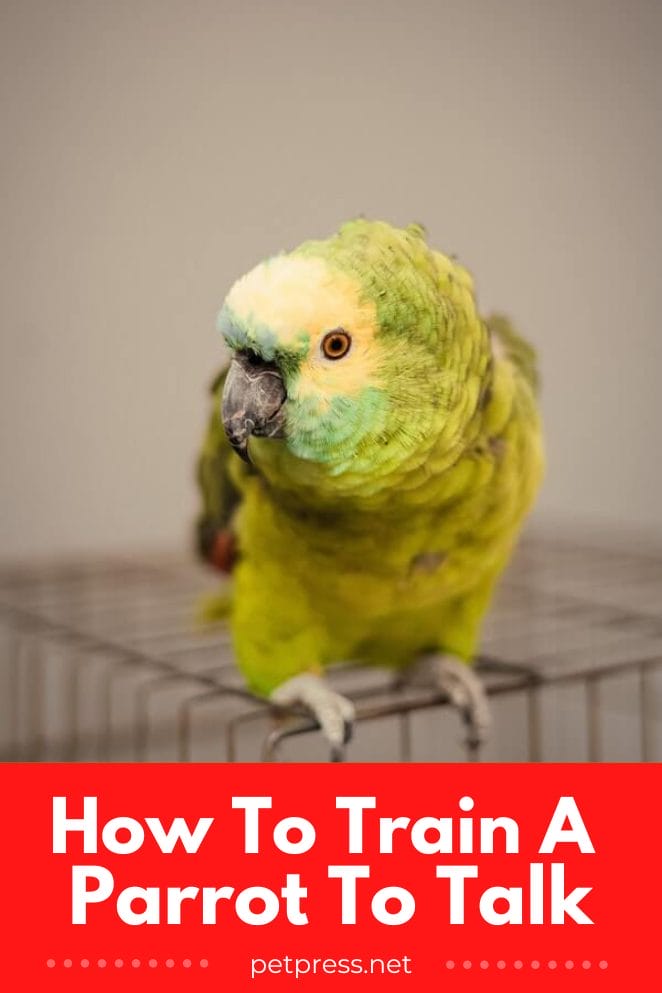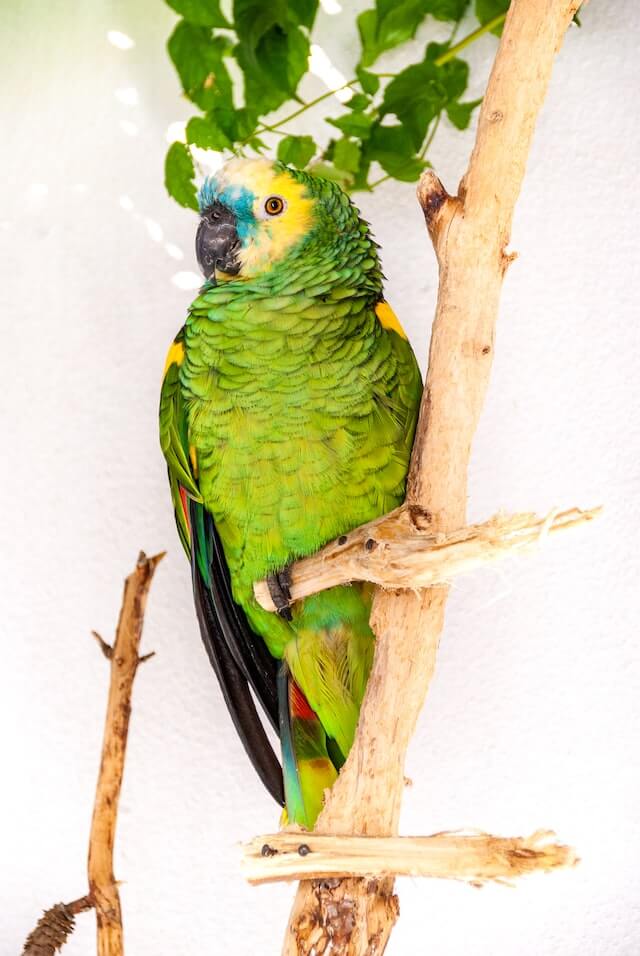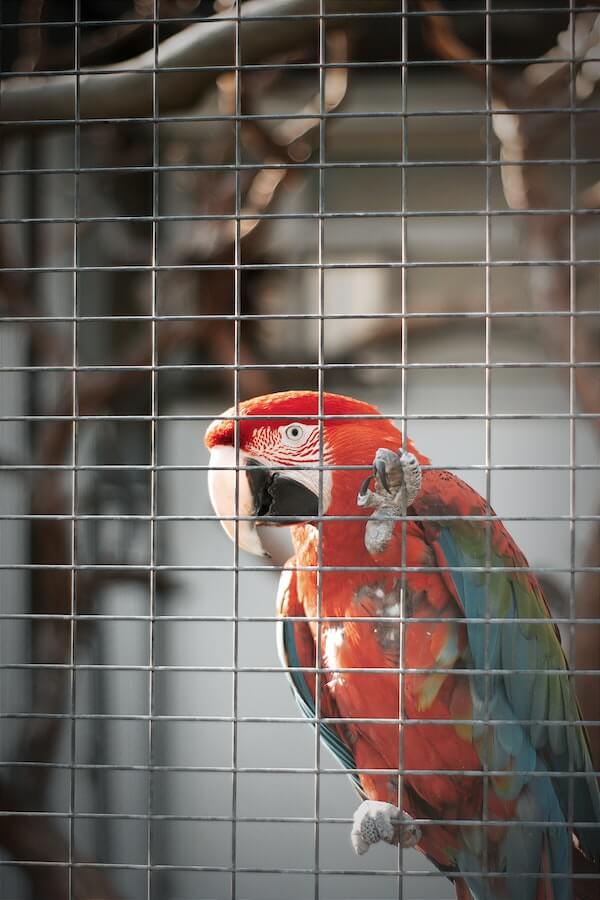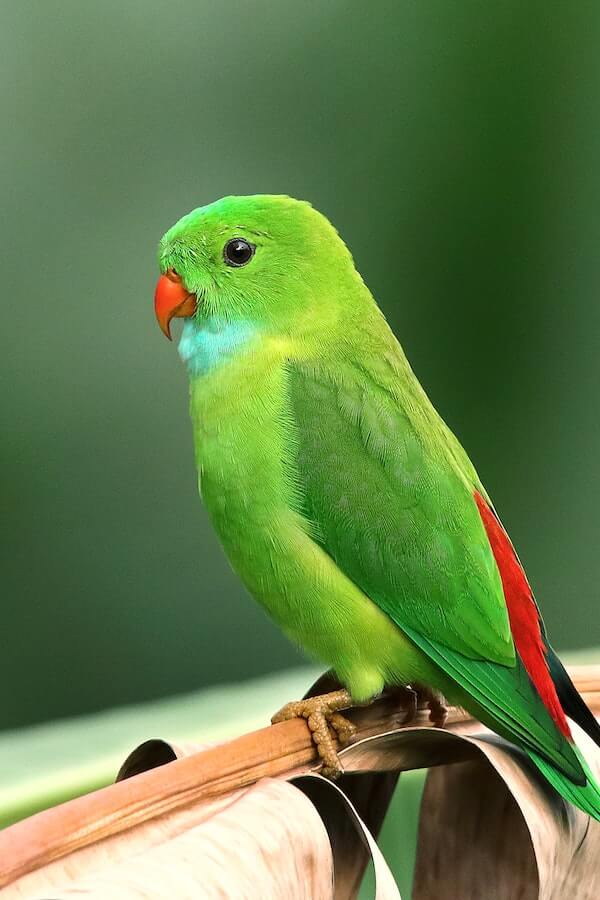
Training a parrot to talk can be an incredibly rewarding and enriching experience. After all, who wouldn’t want the pleasure of hearing their pet parrot greet them with a friendly “hello” every time they walk into the room?
With practice, you can easily teach your feathered friend to recite their favorite phrases or even carry on a conversation with you.
To get started, there are several steps you will need to take in order to ensure success in teaching your parrot to talk.
From setting up the right environment for learning to use the correct reward system, training your parrot is definitely within reach! So go ahead – let’s start talking!
How long does it take for parrots to talk?

Parrots are amazing creatures known for their ability to mimic human speech. But how long does it take for parrots to learn to talk?
The time frame depends on a variety of factors, including the type of bird and its individual personality.
For example, African Grey parrots are renowned for their talking abilities and can typically reach full verbal fluency within 6-9 months.
Other species such as macaws may take up to 2 years or more because they require more practice in order to get comfortable with speaking.
Furthermore, if the bird is shy or timid by nature, it may also take longer for them to develop this skill.
In addition to species and personality, the specific training regimen can also influence how quickly parrots learn to talk.
Dedicated owners who are patient and consistent with their teaching methods will likely see more success over time.
It is also important to remember that even if a bird isn’t able to mimic words yet, it may still be able to make other vocalizations such as whistles or trills, which can be just as enjoyable for both the bird and its owner!
At the end of the day, it can take anywhere from 6 months up to 2 years or more for parrots to learn to talk.
However, with the right combination of patience and dedication, you could soon find yourself having conversations with your feathered friend in no time!
How to train a parrot to talk

Training parrots to talk can be a fun and rewarding experience, but it requires patience and dedication. Many people find that teaching their parrot to speak is the key to creating a strong bond with them. Here’s how you can get started on your training journey:
Step #1
Create a comfortable training environment. Parrots need a calm and quiet place to practice their vocal skills, so make sure your parrot has access to a private space that is free of distractions, noise, and other animals.
Step #2
Talk to your parrot often. Interacting with your bird on a regular basis is the best way to get it used to human voices and language. Speak slowly and clearly, using simple words or phrases. Ask questions and reward any attempts at verbal communication with praise or treats.
Step #3
Repeat words or phrases daily. Choose one word or phrase and repeat it over and over while looking directly into your parrot’s eyes (this will help it learn faster).
As soon as you notice your parrot attempting to mimic the words, reward it with a treat or praise.
Step #4
Play games that encourage vocalization. Parrots love to play, so why not incorporate fun activities into their learning sessions?
Try playing games like ‘follow my voice’ or ‘find the hidden food’, and give them treats as rewards for vocalizing while they play.
Step #5
Teach your bird to associate sounds with objects. If you want your parrot to learn specific words, pair them with certain objects or commands.
For instance, if you want it to learn the word ‘cup’, hold up a cup when you say it and reward successful attempts at mimicking you with a treat or praise.
Step #6
Vary the words and phrases you use. To keep your parrot alert and engaged, switch up the words and phrases you use during training sessions. This will help it learn more quickly and give it a chance to practice its vocal skills.
Step #7
Show patience and consistency. Remember that teaching your parrot to talk takes time, dedication, and patience. Don’t get discouraged if it isn’t picking up new words as quickly as you would like – with enough practice, it will eventually start talking!
With these steps in mind, anyone can train their parrot to speak in no time at all! Just remember to be patient, and consistent, and reward your feathered friend for any attempts at verbal communication.
Which parrot is best for talking?

When it comes to talking parrots, there are a few bird species that stand out. African Greys and Quakers (or Monk Parakeets) are typically considered the best talkers.
African Greys are known for their remarkable ability to mimic human speech, with some individuals even learning hundreds of words!
They also have excellent long-term memories and can remember what they’ve learned over time. Quakers, on the other hand, tend to be a bit more chatty than Africans.
They usually babble in their own language and make lots of noise, but they can also learn short phrases and simple sentences like “hello” or “good morning”.
Both African Greys and Quakers make great talking parrots, but they do have some distinct differences.
African Greys are usually more independent and take longer to bond with their owners, while Quakers tend to be more social and require more attention from their humans.
Additionally, African Greys will require much more training in order to learn how to talk compared to Quakers. If you wish to add one to your family, you can check out the top African grey parrot names to call them by.
Conclusion
Now that you know how to train a parrot to talk, it isn’t as hard as it sounds. With dedication and patience, you can have your avian friend talking in no time!
Start by talking to your bird every day, and use repetition and positive reinforcement to encourage the right behaviors.
Before you know it, your feathered pal will be chirping away, telling you all kinds of stories and secrets! Best of luck teaching your parrot how to talk.
- 7 Dog Breeds With Webbed Feet And Why Do They Have Them - July 19, 2023
- 10 Best Fish For Small Tanks That Make Perfect Pets - July 18, 2023
- How to Breed Guinea Pigs: A Detailed Guide - July 17, 2023


GIPHY App Key not set. Please check settings